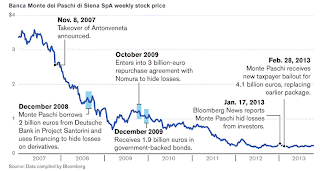All deals are similar, whether corporate or otherwise
The homemaker goes to the fruit vendor for some fruits to buy; The buyer asks for the price, the vendor says, $50 for a dozen; The buyer indicates weakness for the fruit in zest, still tries to negotiate for lower price; The vendor recognizes the buyer's weakness for the fruit, desperation and lack of knowledge of price of the fruit sold in the neighborhood; The vendor does not budge, keeps the price intact, but this time, gives only a minute to the buyer to decide. What does the buyer do? It is anybody's guess, the buyer buys fruit at the price quoted by the vendor and also within the time set by the vendor.
Dealmaking sounds powerful
Dealmaking is fun, attracts attention, boosts ego, and helps create an empire. This sounds good, doesn't it? Who wants routine stuff when one can fly high with dealmaking?
Well, I come back again, growth is never free. For growth to have value, it has to create value; to create value, the acquired business has to earn in excess of the price paid. For this to happen, the dealmaker has to understand cash flows, growth and risk in that business.
Unfortunately, we find many a deal in merger and acquisition arena that goes without understanding value by at least one party to the deal. More often the party has been the acquirer, rather than the seller. The result is that the acquirer suffers losses sooner or later. Time and again these things happen; nothing is learnt from history, history of human behavior and finance, in particular.
One is ignorant and desperate; the other is a bully
Well, if in an even transaction the acquirers have the history of losses to show, destroying the shareholder value, what would happen in an uneven transaction? That is when one party, more often the acquirer, is bullied by the other. Such transactions are not new, though; history has a lot to offer on these types too.
As per this report, one such transaction took place, and the acquirer is now in deep crisis, a more modest way to describe. The CEO and probably the board too did not understand business, finance, value and price; Apparently, there was no financial due diligence done; Financial advice was taken from conflicted (and probably unethical) investment bankers; The acquirer had no financial muscle to pull off in case of a downturn; and the final bullets were: The acquirer was a bank; And the seller just bullied the buyer; Add to this a weaker corporate governance within the acquirer's business.
What results does one expect of this deal? The risk was too much, mainly due to lack of knowledge, and consequently, recipe for disaster was written all over, unless of course, things got luckier. Alas, they didn't.
The deal
Seller's cost of initial acquisition, an assessed value, was Euro 6.6 b;
Not much later, seller's sale price, i.e. buyer's cost of acquisition was Euro 9 b;
Date of transaction was at the start of the financial crisis, i.e. by end of 2007;
The result was instant profits for the seller; and a little delayed but huge losses for the buyer.
Now, the bank is on the lookout for fresh capital to recoup losses and pay off bailout proceeds. If not, once again, it will be bailed out, in all probability, but this time will likely become part of the government.
The lessons from the story
The intention is not to point the folly of the acquirers (or even of the sellers) in this story, but to understand what it means to make a deal.
In any acquisition transaction the key to profits and happiness is to first have a grip over the deal by understanding its intricacies and be able to value the business. For business valuation the vital ingredients are understanding of the business itself, its cash flows generating capacity, its growth prospects, and risk involved. Finally, it is imperative to be able to distinguish between the price (to be paid as cost of acquisition) and value (to be gained as a result of acquisition).
Only then the usual justifications of an acquisition, i.e. control, synergy, and enhancing shareholder value, would crystalize.
Only then the usual justifications of an acquisition, i.e. control, synergy, and enhancing shareholder value, would crystalize.
If these lessons are not learnt, we recall someone's observation: what we learn from history is that we don't learn from history.
Back to the report we say, bulldozed!

No comments:
Post a Comment